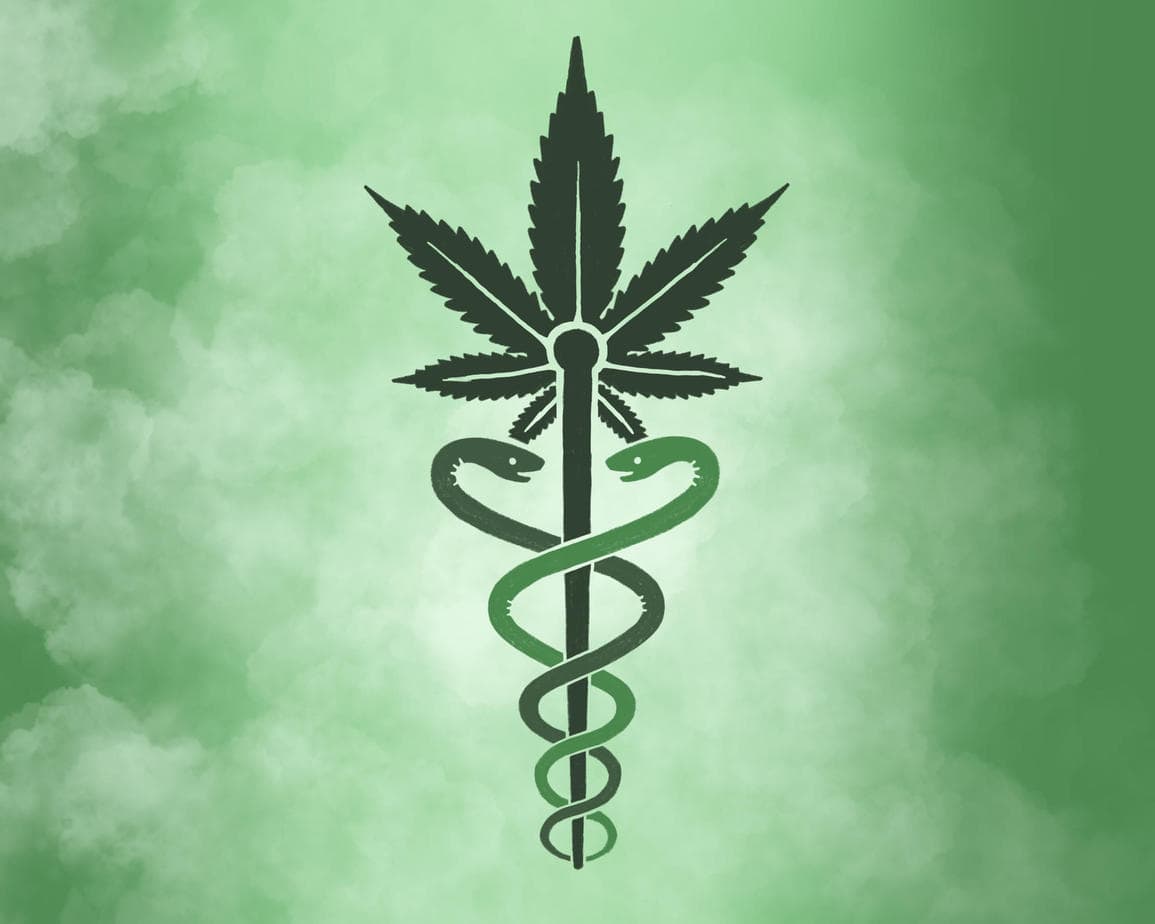Steps to Secure Your Medical Cannabis Card for Optimal Health Benefits
Steps to Secure Your Medical Cannabis Card for Optimal Health Benefits
Blog Article
Shedding Light on What Medical Marijuana Can Cure: an In-Depth Analysis of Its Therapeutic Features
In current years, there has been an expanding interest in the therapeutic capacity of clinical marijuana. While anecdotal evidence is plentiful, a thorough assessment of the clinical information regarding the effectiveness of medical marijuana in dealing with these problems is warranted.
Chronic Pain Administration
Persistent pain management remains a vital element of healthcare, necessitating a thorough strategy for reliable therapy. In current years, clinical cannabis has emerged as a potential healing option for individuals experiencing persistent discomfort problems. The endocannabinoid system, which plays a crucial function hurting modulation, has been targeted by cannabis-based treatments to minimize signs and symptoms and enhance top quality of life for people.

Additionally, medical cannabis supplies an encouraging alternative for people that experience excruciating side impacts from conventional discomfort drugs. Its capability to resolve pain through a various device makes it a useful addition to the collection of treatments readily available for persistent pain monitoring.
Epilepsy Therapy Prospective
Clinical cannabis has shown encouraging potential in the treatment of epilepsy, using a novel healing strategy for managing seizures in people. Epilepsy is a neurological problem characterized by frequent seizures, impacting people of all ages. Traditional therapies for epilepsy include antiepileptic medications, but these drugs may not be efficient for all individuals and can have substantial adverse effects.
Study on using medical marijuana for epilepsy has revealed motivating results. Cannabidiol (CBD), a non-psychoactive substance located in marijuana, has been particularly highlighted for its anticonvulsant residential or commercial properties. Studies have actually shown that CBD can reduce the frequency and seriousness of seizures in patients with treatment-resistant forms of epilepsy, such as Dravet syndrome and Lennox-Gastaut disorder.
In Addition, the FDA has actually authorized a CBD-based drug, Epidiolex, for the treatment of seizures related to these serious kinds of epilepsy. This milestone highlights the expanding acknowledgment of clinical marijuana as a useful healing choice for handling epilepsy and gives hope for patients who have not reacted well to standard therapies.
Nausea Or Vomiting Alleviation Perks
The reduction of nausea via making use of cannabis has been progressively identified for its therapeutic benefits in different clinical problems. Nausea or vomiting and throwing up prevail signs experienced by individuals undergoing radiation treatment, those with food poisonings, and individuals with chronic pain conditions. Clinical cannabis, with its active substances such as THC and CBD, has actually revealed promise in providing remedy for nausea or vomiting.

Moreover, medical marijuana uses an all-natural choice for individuals that do not respond well to typical anti-nausea medicines or that experience serious negative effects from these drugs. People undertaking radiation treatment, specifically, have reported substantial improvements in their lifestyle when making use of marijuana to take care of nausea or vomiting. As study in this field proceeds to expand, clinical cannabis is progressively being thought about as an important choice for queasiness alleviation in numerous medical settings.
Anxiousness Reduction Results
Studies have shown the potential of cannabis in lowering anxiety signs via its communication with the endocannabinoid system. The endocannabinoid system plays a crucial duty in controling feelings, consisting of stress and anxiety, by keeping homeostasis in the body. Cannabinoids in cannabis, such as THC and CBD, engage with the endocannabinoid receptors in the mind, specifically the CB1 and CB2 receptors, to regulate anxiety-related reactions.

Individuals with problems like generalised anxiousness disorder (GAD), social stress and anxiety problem, and post-traumatic stress disorder (PTSD) may gain from the anxiolytic properties of cannabis (Medical Marijuana Card Clinton MS). However, more research is needed to identify optimal does, shipment techniques, and long-lasting impacts on anxiousness management.
Prospective for Inflammation Control
With its well-known anti-inflammatory properties, cannabis has shown assurance in potentially controlling swelling within the body. Swelling is the body's natural response to injury or infection, yet when it ends up being chronic, it can add to different diseases such as arthritis, inflammatory bowel disease, and also cardiovascular disease. Research recommends that the cannabinoids discovered in cannabis, such as THC and CBD, can assist control the immune response and minimize swelling.
Research studies have revealed that marijuana can engage with the endocannabinoid system, which plays a vital role in managing inflammation. By targeting the cannabinoid receptors, marijuana compounds can regulate the immune response, causing a decline in inflammation degrees. This makes marijuana a prospective prospect for managing inflammatory problems where conventional therapies have dropped short.
Moreover, cannabis-derived products like CBD oil have obtained appeal for their anti-inflammatory residential or commercial properties, with numerous people utilizing them as a natural solution for conditions related to inflammation. While more study is required to totally recognize the systems behind marijuana's anti-inflammatory effects, existing findings show appealing outcomes for the my latest blog post potential use of clinical marijuana in controlling inflammation.
Conclusion
Finally, medical cannabis has revealed appealing restorative homes in taking care of persistent discomfort, treating epilepsy, relieving nausea or vomiting, blog here minimizing anxiousness, and regulating swelling. Its prospective advantages in numerous clinical problems highlight the relevance of more research and exploration into its medicinal use. The evidence recommends that clinical marijuana can be a valuable alternative treatment option for patients seeking remedy for a range of problems and signs and symptoms.
In current years, clinical marijuana has actually arised as a prospective restorative choice for people experiencing from chronic pain conditions.Medical cannabis has revealed promising potential in the therapy of epilepsy, supplying an unique restorative strategy for managing seizures in people. As research study in this area continues to expand, medical marijuana is progressively being taken into consideration as an important option for queasiness alleviation in various medical settings.
In final thought, medical marijuana has revealed promising therapeutic buildings in taking care of chronic discomfort, treating epilepsy, alleviating queasiness, minimizing anxiousness, and controlling inflammation. The evidence suggests that medical marijuana could be a useful choice treatment alternative for people looking for alleviation from an array of signs and conditions.
Report this page